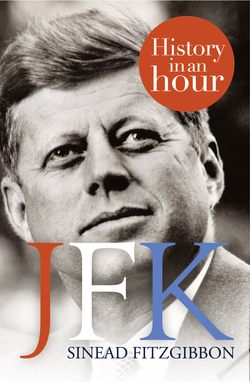Читать книгу JFK: History in an Hour - Sinead Fitzgibbon - Страница 9
ОглавлениеTriumph to Tragedy
In keeping with their sibling rivalry, Joe Jr, in a letter dated 10 August, voiced his obvious scepticism. ‘Where the hell were you when the destroyer hove into sight,’ Joe Jr asked, ‘and exactly what were your moves, and where the hell was your radar?’ Suspecting that his brother was in some way culpable for the accident, Joe Jr became more intent than ever on outdoing his brother’s achievements. Joe Jr’s cynicism was also echoed in other quarters, with some suggesting that Kennedy could not have been paying attention to have allowed a destroyer to get so close. All such criticism was, however, drowned out by those extolling his courage and ingenuity during the subsequent rescue.
Having gained his wings in 1942, Joe Jr had spent much of the war in England, flying around the coastline on anti-submarine patrols. His attitude became increasingly reckless. Refusing to return home after flying thirty missions (which was his entitlement), Joe Jr chose instead to stay on, volunteering for ever more dangerous assignments – until finally his luck ran out.
On 12 August 1944, Lt Joseph Kennedy and his co-pilot, Lt Wilford John Willy, took to the air in a B-24 Liberator packed with 22,000 lbs of dynamite, the maximum amount of explosives that could be carried by a plane at the time. Their target, on the Belgian coast, was the launching site of the German V-1 flying bombs (Doodlebugs), which had been bombarding London since June. Their plan was to fly to 2,000 feet, activate the remote control system, arm explosives, and parachute from the aircraft. Joe Jr, no doubt aware that a number of previous attempts at such an attack had ended disastrously, reportedly asked a friend to ‘tell my Dad that I love him very much’, should he not come back.
Joe Jr didn’t come back. The explosives ignited not long after take-off, engulfing the plane in a ball of fire in the skies over South East England. Joe Jr’s body, and that of his co-pilot, were never recovered.
Lt Joseph Kennedy, Jr, 1942
The death of the eldest son left the Kennedys shaken. Aside from his grief, Jack was also greatly upset by the realization that his brother had now become idealized in his father’s eyes and thus a figure of impossibly high comparison. ‘I’m shadowboxing’, he said, ‘in a match the shadow is always going to win.’
